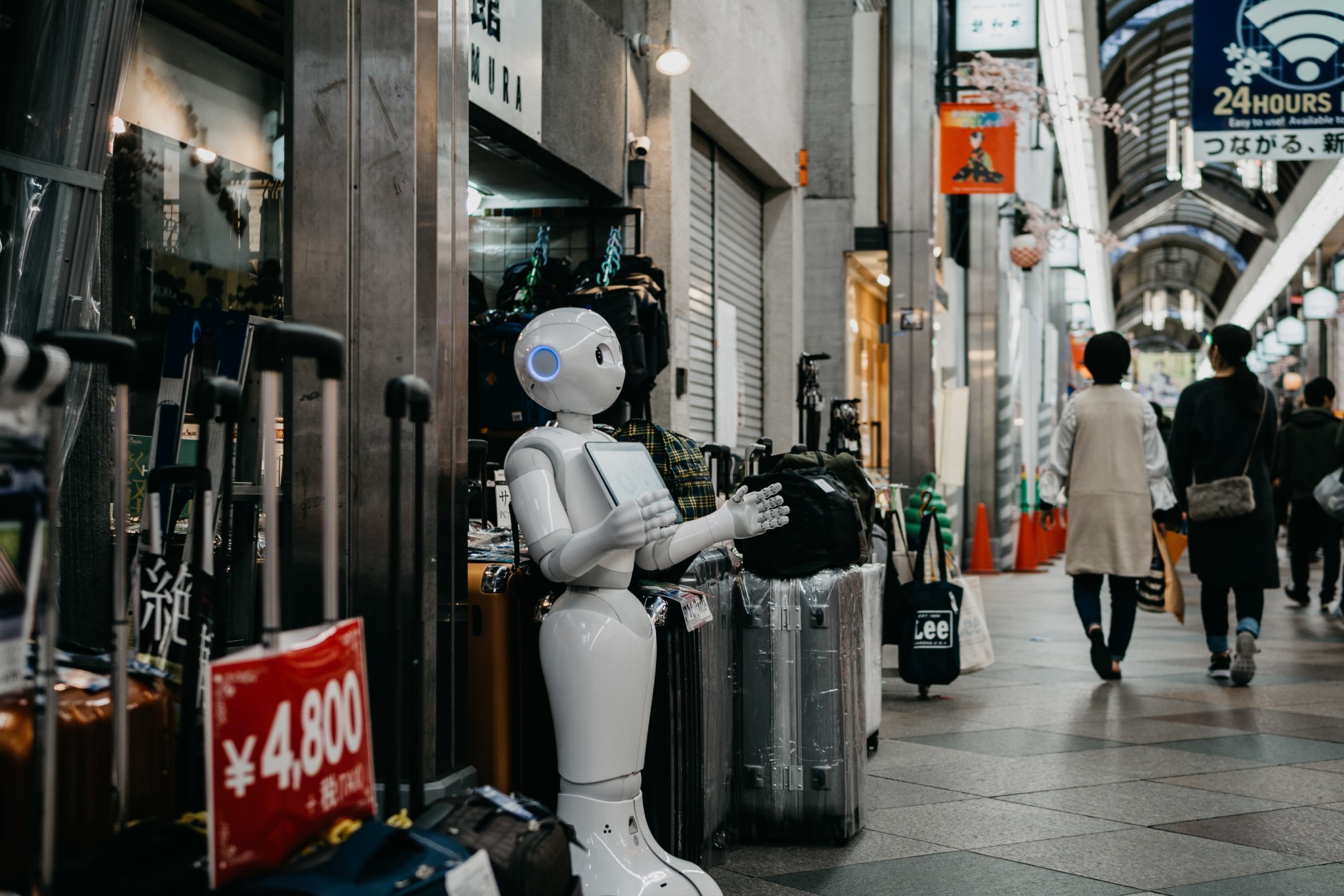Robots & Automation: Will a Robot Take Your Job?

When the first light bulbs hit the market, there was a grave concern about the future of workers that were employed by oil lamp and candle makers. However, electric light allowed night shifts at various factories which created even more work positions than earlier. A hundred years earlier in England, at the beginning of the industrial era, textile factory workers formed the Luddite movement and used to smash machines as they were afraid they would completely remove humans from the factory floors.
Nevertheless, more than two centuries after the industrialization process people still occupy positions at factory floors alongside their robot counterparts. But is there really no threat to human workers in the future? Let’s get a little closer look into what automation brings to the table, as well as what it takes from it and throws in the trash bin of the history.
Please mister Robot, take my job
Would you rather have a robot step into a minefield and defuse landmines or would you prefer going in yourself and hope for the best? For a while now, robots have been dealing with those jobs that are too dangerous for humans like removing landmines or working around high-radiation areas. These machines often have a human operator that keeps the situation under control or fully manipulates the machine to finish a dangerous task.
The US Navy uses THOR (Tactical Hazardous Operations Robot) in cases when there is a fire onboard and it's impossible to assign human personnel to extinguish the fire. There are also mechanic firefighters in other parts of the world that operate in situations that are too hazardous for humans to intervene.
The principle of human life preservation is the basic concept behind the research and development of autonomous and man-guided machines in cases we described. However, is it always the care for our fellow human beings that propels the wheels of progress?
The use of robots in safe environments
We could argue that robots exist to save human lives during challenging procedures and tasks that represent a danger for human wellbeing, however, there's also a matter of profitability. In the automotive industry, robots are used in logistics and for most welding operations because they are more productive and cost-effective than human laborers. Robots don't call in sick, they won't form a union and ask for higher wages or better healthcare plan. In case of malfunction, however, human intervention is necessary.
The development of Artificial Intelligence galvanized the fear of robots and automation software among many people. AI-driven writing software is capable of creating textual content with just a few basic pointers but it lacks human insight that brings provided information closer to the human reader. In other words, if you were to read a resume written by a machine, you would get a series of useful and well-placed information but no elaboration of the data you’ve been presented with. That’s why a human resume writer is also needed to, at least, humanize the content and make it less Google oriented.
What do the futurists say?
According to expert predictions, automation will have a significant impact on the work positions of today in the future. A report issued by Fortune magazine suggests that 400 to 800 million current jobs will be lost until 2030 due to the increasing development of various robot solutions. Still, it's important to keep in mind that these predictions concern jobs that currently exist, which doesn't mean this change won't cause new types of jobs to immerge. Remember that just 20 years ago we didn't know what an SEO specialist is and if you wanted to engage in web development in the 1980's you would probably live your life on welfare coupons.
Naturally, we hear futurists creating hype around robots taking over the human work and leaving us all out of jobs and with no future, however, the history shows different prospects. Since the industrial revolution people were predicting a future where there are no jobs for humans but every time a process is automated several new occupations are rising to back up and support the emerging technology.
What should we do?
As technology progresses, so should we humans. When we face competition it's in our nature to improve our own skillset and adapt to the new environment. After all, that's what kept us going all this time and made us masters of the planet we live in. Therefore, the moral of this story would be our need to look at robots and Artificial Intelligence as our support rather than competitors. We should also try and enhance our skillset at all times, gain fresh knowledge, and ensure our value to employers.
About The Author
Justin Osborne is a writer at essay writers and writing services online, he loves to share his thoughts and opinions about education, writing and blogging with other people on different blogs and forums. Currently, he is working as a content marketer at papersowl review.
Thanks for helping to keep our community civil!
This post is an advertisement, or vandalism. It is not useful or relevant to the current topic.
You flagged this as spam. Undo flag.Flag Post


